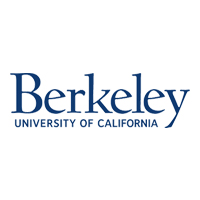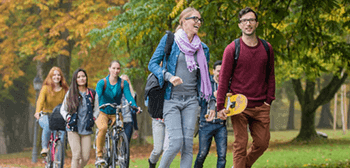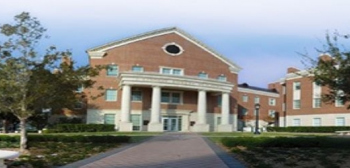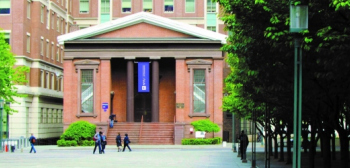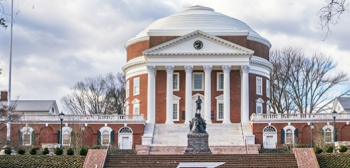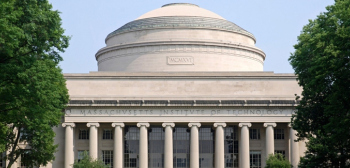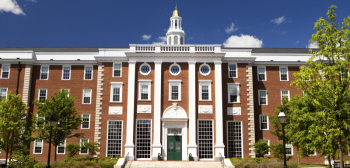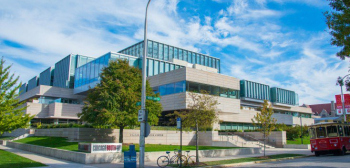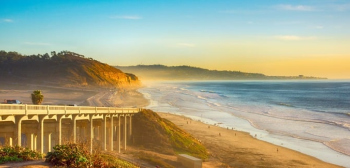加州大学伯克利分校
About
Founded in 1868, the University of California, Berkeley (UCB) is a public research university and the flagship institution of the ten research universities affiliated with the University of California system.
Berkeley is one of the 14 founding members of the Association of American Universities and is home to some world-renowned research institutes, including the Mathematical Sciences Research Institute and the Space Sciences Laboratory.
Berkeley alumni, faculty and researchers include 99 Nobel laureates, 23 Turing Award winners, and 14 Pulitzer Prize winners. Faculty member J. R. Oppenheimer led the Manhattan project to create the first atomic bomb, while Berkeley’s Nobel laureate Ernest Lawrence invented the cyclotron, through which UC Berkeley scientists and researchers discovered 16 chemical elements of the periodic table.
Berkeley started out with little more than 40 students but, as the first full-curriculum university in California, it quickly gained ground on its illustrious forebears. By the early 1940s, it had grown substantially and was ranked second only to Harvard.
During this decade, Berkeley gained further prestige through its radiation laboratory, which was instrumental in the project to develop an atomic bomb. During the sixties, Berkeley gained a worldwide reputation for student activism, thanks to the Free Speech Movement of 1964 and campus opposition to the Vietnam War. In 1969, the then governor of California Ronald Reagan called the Berkeley campus "a haven for communist sympathizers, protesters, and sex deviants", though today’s students tend to be more politically moderate.
The Berkeley campus encompasses approximately 1,232 acres of the bay area of Los Angeles, with many of its Beaux-Arts-style buildings recognized as California Historical Landmarks.
Three quarters of its 40,000 students are undergraduates, giving life on campus a youthful feel in vibrant, urban surrounds. Most undergraduate students live in residential halls, where they can make friends, work and play in a safe environment designed to enhance the academic experience through a culture of care.
There are also student co-ops and not-for-profit housing cooperatives for Berkeley students, with over 1,300 students living in 17 houses and three apartment cooperatives around the Berkeley campus. Students can play sports, and join clubs and societies spanning every imaginable interest. On campus, students can visit the Lawrence Hall of Science, watch sport at the newly-renovated California Memorial Stadium, take in a noon concert, or stroll through Sproul Plaza, the social heart of Berkeley campus.
About
Founded in 1868, the University of California, Berkeley (UCB) is a public research university and the flagship institution of the ten research universities affiliated with the University of California system.
Berkeley is one of the 14 founding members of the Association of American Universities and is home to some world-renowned research institutes, including the Mathematical Sciences Research Institute and the Space Sciences Laboratory.
Berkeley alumni, faculty and researchers include 99 Nobel laureates, 23 Turing Award winners, and 14 Pulitzer Prize winners. Faculty member J. R. Oppenheimer led the Manhattan project to create the first atomic bomb, while Berkeley’s Nobel laureate Ernest Lawrence invented the cyclotron, through which UC Berkeley scientists and researchers discovered 16 chemical elements of the periodic table.
Berkeley started out with little more than 40 students but, as the first full-curriculum university in California, it quickly gained ground on its illustrious forebears. By the early 1940s, it had grown substantially and was ranked second only to Harvard.
During this decade, Berkeley gained further prestige through its radiation laboratory, which was instrumental in the project to develop an atomic bomb. During the sixties, Berkeley gained a worldwide reputation for student activism, thanks to the Free Speech Movement of 1964 and campus opposition to the Vietnam War. In 1969, the then governor of California Ronald Reagan called the Berkeley campus "a haven for communist sympathizers, protesters, and sex deviants", though today’s students tend to be more politically moderate.
The Berkeley campus encompasses approximately 1,232 acres of the bay area of Los Angeles, with many of its Beaux-Arts-style buildings recognized as California Historical Landmarks.
Three quarters of its 40,000 students are undergraduates, giving life on campus a youthful feel in vibrant, urban surrounds. Most undergraduate students live in residential halls, where they can make friends, work and play in a safe environment designed to enhance the academic experience through a culture of care.
There are also student co-ops and not-for-profit housing cooperatives for Berkeley students, with over 1,300 students living in 17 houses and three apartment cooperatives around the Berkeley campus. Students can play sports, and join clubs and societies spanning every imaginable interest. On campus, students can visit the Lawrence Hall of Science, watch sport at the newly-renovated California Memorial Stadium, take in a noon concert, or stroll through Sproul Plaza, the social heart of Berkeley campus.
University highlights
- 2012#22
- 2014#25
- 2015#27
- 2016#26
- 2017#28
- 2018#27
- 2019#27
- 2020#28
- 2021#30
- 2022#32
- 2023#27
- 2024#10
- 2025#12
- 2026#=17
Campus locations
University of California, Berkeley (UCB),
Campanile Way , Berkeley , California , United States , 94720
Similar Universities
伊莱布诺德商学院
651 N Shaw Ln Rm M100, East Lansing
Lyle School of Engineering
6425 Boaz Lane, Dallas
New York University Tandon School of Engineering
6 MetroTech Center, Brooklyn
罗切斯特大学西门商学院
245 Gleason Hall, Rochester
德克萨斯大学阿灵顿大学
701 S. Nedderman Drive, Arlington
美国纽约利姆时尚商业管理学院LIM College项目
216 E 45th Street, New York
McIntire School of Commerce
125 Ruppel Drive, Virginia
德克萨斯大学奥斯汀分校的McCombs商学院
300 W Martin Luther King Jr Blvd, Austin

